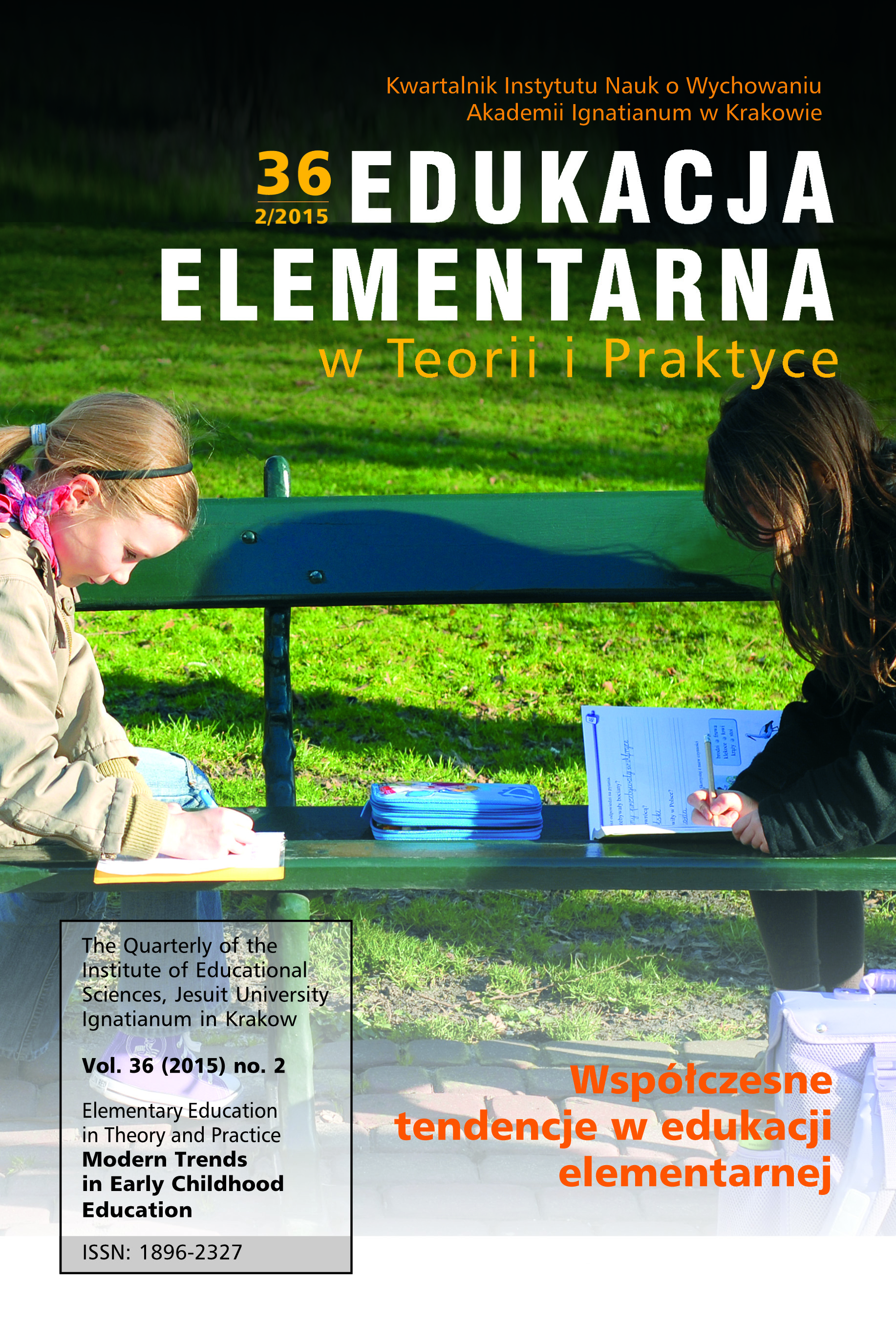Ocenianie kształtujące w edukacji wczesnoszkolnej. Próba odpowiedzi na oczekiwania rzeczywistości XXI wieku
Formative Assessment in Early Learning Education. An Attempt to Answer the Expectations of the 21st Century Reality
Author(s): Izabela NadolnikSubject(s): Social Sciences, Education
Published by: Uniwersytet Ignatianum w Krakowie
Keywords: formative assessment; pupil support; feedback; success criteria; pupil cooperation;dialogue between EU and China;
Summary/Abstract: Throughout the 20th century, pedagogy was an arena of conflict for different movements, points of views and trends that sought effective solutions regarding educational processes, learning and upbringing. The rapid transformation of civilization as well as socio-economic changes brought the need for novel educational methods that could cope with the developing world and serve its needs. In the view of these challenges, new requirements were set for the entire educational system as well as teachers. The search for the optimum solutions in preparing pupils from their first years at school to functioning in a modern reality became an important task and formative assessment became one of the propositions as to how to achieve that. This is a method that helps pupils to learn and build their motivation. Its major strategies are: defining the objectives of the lessons/classes and the criteria of success together; organising a discussion in a class; asking problem questions; giving feedback to pupils; encouraging friendly cooperation; implementing a shared responsibility for the learning process. The role of a teacher as an initiator of a child/pupil’s activeness and self-reliance is immeasurable in this respect. The teacher who uses formative assessment in their classes is not only concentrated on the teaching but also on the learning of his pupils. Their main task is to create a motivating and stimulating environment and to create situations which can be used for effective learning. The characteristics of formative assessment encompass requirements for the evaluation process which are also enunciated by educational law as well as the principles of early learning didactics.
Journal: Edukacja Elementarna w Teorii i Praktyce
- Issue Year: 10/2015
- Issue No: 2 (36)
- Page Range: 43-56
- Page Count: 14
- Language: Polish

